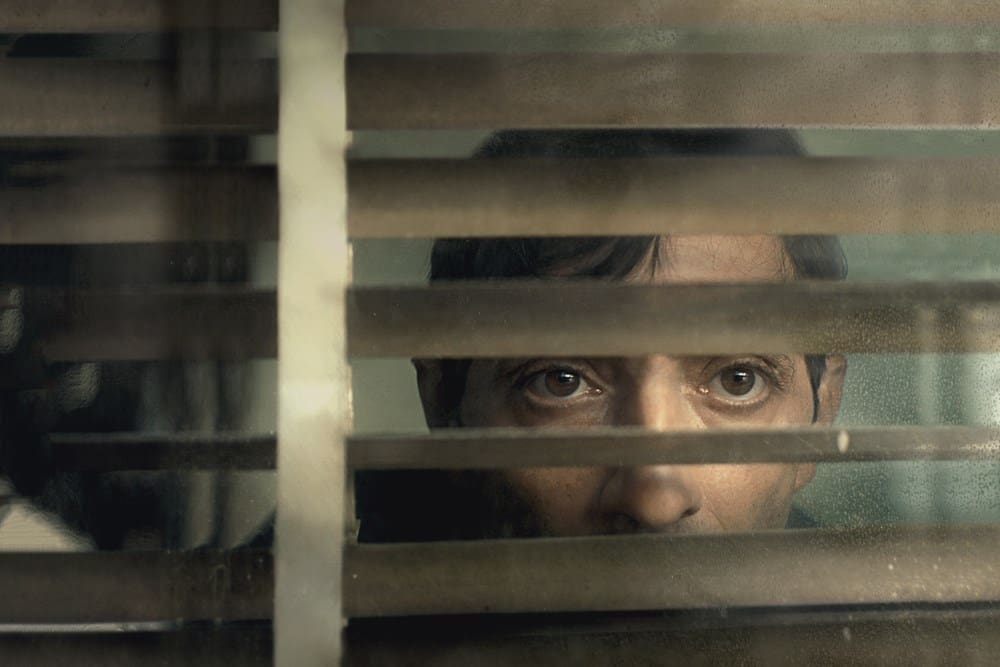
Director Mateo Garrone’s new film Dogman isn’t what it sounds like. While the title conjures images of a man turning into a dog and struggling not to chase every cat he sees, the Italian film is actually a fairly gritty morality play about small-time gangsters. The titular dog man is Marcello (Marcello Fonte), a dog groomer who is too gentle for his own good. You can see his goodness in the way he treats his dogs, speaking sweetly and calmly even when they’re growling at him.
His approach to humans is equally kind and it gets him into trouble, Simone (Edoardo Pesce), a thug to whom Marcello sells coke. Simone is casually threatening whenever he deals with Marcello and frequently violent when dealing with others. As one of the other neighborhood gangster says during a discussion of whether they should hire a hitman to take care of Simone, he’s a “mad dog” who needs to be handled. That metaphor isn’t a coincidence.
While Simone is a nuisance to everyone, he’s especially dangerous for Marcello, whom he embroils in an increasingly dangerous series of schemes. Garrone–who wrote the script with Ugo Chiti and Massimo Gaudioso–clearly want to use their dynamic to explore the limits of human kindness, but they do so in the worst way by not justifying the film’s inciting incident. It may be a spoiler to say exactly how, but it’s impossible to talk about the film without describing it and the event happens early enough that it’s really part of the film’s premise.
After escalating his crimes and how much he exploits Marcello’s tolerance for him, Simone finally pushes things too far, forcing Marcello to give him the keys to the grooming shop so he can then rob the cash-for-gold place next door. From everything we’ve seen before, we know that Simone won’t keep any of the promises he makes about making sure Marcello won’t get in trouble—and so does Marcello. Which is why it makes no sense that Marcello lets him do it. Not putting up a fight when his dog tries to eat his pasta is one thing, but letting his “friend” take him away from the daughter he obviously adores and irrevocably damage his reputation in the neighborhood stretches believability too far.
Even harder to believe, when the police offer to keep Marcello out of jail by turning on Simone, he refuses to do it. While Marcello, after a year in jail, seems to return expecting Simone to pay him a €10,000 share of the loot from the heist, it’s impossible to accept that he ever really expected payment when we never once Simone pay him for the coke he constantly “buys”. It’s a faulty premise and everything that springs from there is faulty because of it. Though what happens after Marcello returns is best kept a surprise, suffice to say things get extreme and the Chekhov’s Gun line about Simone being a mad dog comes to violent fruition.
Guarrone, Chiti and Gaudioso clearly want to explore the limits of human kindness through Dogman. Unfortunately, it’s also unclear what they want to actually say. Maybe Marcello is a cautionary tale about being too passive or kind. Maybe his story is an indictment of the violent masculinity Simone represents. Maybe it’s just a fable about the things people can do to each other. It’s impossible to say once the film is over. Still, regardless of the film’s overall message, its problem is the same as its protagonist’s: it doesn’t say it loud enough.

